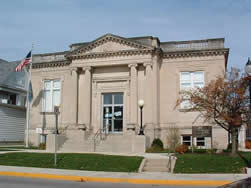Septic systems work great when they are properly sized, constructed, and maintained. The problem arises when any one of these items doesn’t occur. If you are interested in purchasing a home with a septic system, make the effort to be a smart consumer so that you don’t purchase a home with a failing septic system. Buyers can help protect themselves by having the septic system inspected by a qualified inspector. Also keep these items in mind when looking at purchasing a home:
- Talk with a county health inspector to learn whether there is any information on record for the septic system.
- Check for visible signs of discharge from the system (including running wastewater, blackened soil or unusually green grass) or any sign of a sewer smell in the area of the system
- Ask the seller about the regular maintenance that was done on the septic system. When was the septic tank last cleaned and inspected? The septic tank should be cleaned every 3 to 5 years. If the system has not been maintained, it might not be a bad idea to hire a reputable pumper to clean and inspect the septic tank before closing on a house.
- Educate yourself on how to use and maintain a septic system. This is the number one way to prevent a costly repair or replacement of the septic system.
If you own a septic system, it is important that it be properly maintained. How often you need to pump the solids out of your septic tank depends on three major factors:
- the number of people in your household;
- the amount of wastewater generated (based on the number of people in the household and the amount of water used); and
- the volume of solids in the wastewater (e.g., using a garbage disposal will increase the amount of solids).
Although your septic tank absorption field generally does not require maintenance, you should adhere to the following rules to protect and prolong its functional life:
- Do not drive over the absorption field with cars, trucks, or heavy equipment.
- Do not plant trees or shrubbery in the absorption field area, because the roots can get into the lines and plug them.
- Do not cover the absorption field with hard surfaces, such as concrete or asphalt. Grass is the best cover, because it will help prevent erosion and help remove excess water.
- Do divert surface runoff water from roofs, patios, driveways, and other areas away from the absorption field.
Homeowners wanting to take good care of their septic systems should make note of the following items that should never be flushed down the drain or toilet. These items can overtax or destroy the biological digestion taking place within the system or clog pumps and pipes.
Do you have a sewage complaint? Please fill out the form below, sign, and mail or drop off the form to the Wells County Health Department at 223 W. Washington, Bluffton, IN 46714.
Sewage Complaint Form
The Wells County Regional Sewer District (WCRSD) was established to provide sanitary sewer service in unincorporated areas of Wells County. The mission of the Wells County RSD is to develop solutions for areas that have similar environmental problems to the original project in the McKinney/Paxson project area. There are many unincorporated areas around the county which have no viable septic alternatives when the existing systems start to fail. That’s where the WCRSD can help by advocating on behalf of impacted homeowners to capture public funds to create collection and treatment solutions.
The WCRSD was formed in 2009 as an independent public utility per Indiana code to extend sanitary sewer service to the McKinney/Paxson area due to a finding of extremely high levels of e-coli found in the water table in the area. The McKinney/Paxson project area was transitioned to the City of Bluffton after construction of the infrastructure was complete. In 2018, the WCRSD reinitiated its efforts within the county after an additional IDEM complaint was registered against the county due to e-coli present in a ditch along SR116 near Bluffton. The WCRSD has partnered with the City of Bluffton via service agreements for the treatment of wastewater from WCRSD-owned collection systems. These agreements allow projects to move forward in the many areas of Wells County with failed onsite septic systems.
For more information regarding the Wells County Regional Sewer District and its ongoing projects, please visit their website: www.wellsrsd.com



